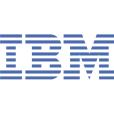 IBM announced it has donated e-learning software code to the Sakai Project, a group of learning institutions creating and deploying open-source course management, collaboration and online research support tools for higher education. The donation is part of IBM's overall support of open computing in education. Last year, the company announced that it will allow royalty-free access to its patent portfolio for the development and implementation of selected open software standards for Web services, electronic forms and open document formats in education.
IBM announced it has donated e-learning software code to the Sakai Project, a group of learning institutions creating and deploying open-source course management, collaboration and online research support tools for higher education. The donation is part of IBM's overall support of open computing in education. Last year, the company announced that it will allow royalty-free access to its patent portfolio for the development and implementation of selected open software standards for Web services, electronic forms and open document formats in education. IBM developed the donated code exclusively for Sakai to enable the tracking of learning content and help Sakai better support universities that adopt its collaboration and learning environment (CLE). IBM will also contribute the expertise of a senior architect to help speed the development and growth of Sakai software and of open-computing communities in higher education.
IBM's code donation will enable teachers using the Sakai environment to track consistently the progress of their students using Sakai-based courseware. For students, the IBM code will allow more freedom in how they access distance and self-directed learning applications. Since the Sakai environment is on the Web, students can learn and track their progress while in class, at home or anywhere else where they have a device connected to the Internet.
"Sakai was created on the premises that open standards and open source solutions lower costs, increase interoperability and enhance flexibility," said Chuck Severance, PhD, Executive Director of the Sakai Foundation and Chief Architect of the Sakai Project at the University of Michigan. "This generous donation will help Sakai offer the most comprehensive and accessible open learning CLE framework in higher education. IBM has been one of the early and most aggressive leaders in supporting open source in the education industry and we look forward to continuing our partnership with them."
At the recent Sakai Conference in Vancouver, more than 70 percent of surveyed attendees reported that they were planning on deploying Sakai in pilot, expanding their existing implementation or putting Sakai into production at an enterprise level.
"Open-source software and open standards can revolutionize the applications and technology for learning, just as Linux, Apache and Eclipse have transformed and standardized infrastructure software," said Michael King, director of market development, IBM Global Education Industry. "We believe an open cycle of innovation that leverages common platforms such as the Sakai framework will become the model for developing and broadly deploying new solutions for educational institutions."
IBM's donation will make Sakai's CLE framework compliant with SCORM courseware standards. SCORM stands for Sharable Content Object Reference Model. It provides specifications for producing learning content that is interoperable and can be easily shared and reused. SCORM-compliant code allows developers to create learning content once and then deliver, launch, and track the content in multiple environments without rewriting the code.
About Sakai
The Sakai Project, a landmark venture announced in January 2004 to create open-source course management, collaboration and online research support tools for the higher education community, involves more than 90 universities, colleges and institutions of learning around the world. The project, begun through a collaboration involving the University of Michigan, Indiana University, the Massachusetts Institute of Technology, Stanford University, the Open Knowledge Initiative and the uPortal Project, and funded by the Mellon and Hewlett Foundations, released version 2.0 of its software in 2005. The Sakai Software has been deployed as the primary teaching and learning system at the University of Michigan, with over 35,000 users. It is in a full parallel year at Indiana University with deployment to 90,000. Major pilot projects and rollouts are underway at Stanford University, University of California-Berkeley, MIT, Rutgers, Yale, UC-Merced, University of South Africa, Universitat de Lleida (Spain), Roskilde Universitetscenter (Denmark), Universidade Fernando Pessoa (Portugal), and others. For more information, please visit www.sakaiproject.org. For more information about SCORM, please visit www.academiccolab.org/projects/scorm.html.

No comments:
Post a Comment